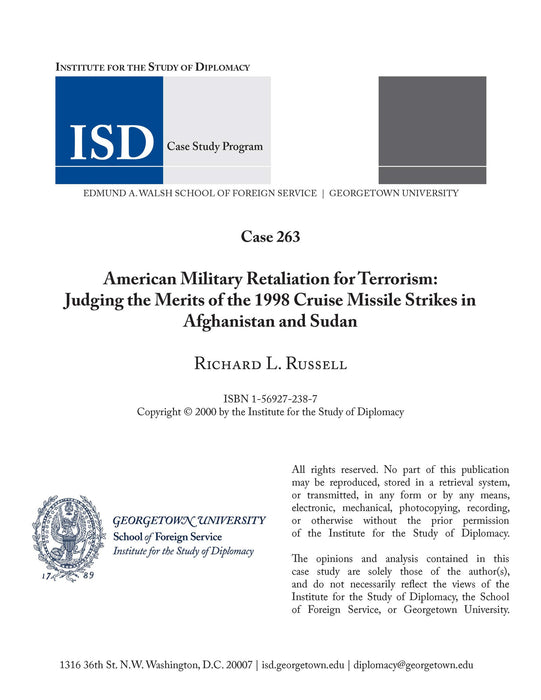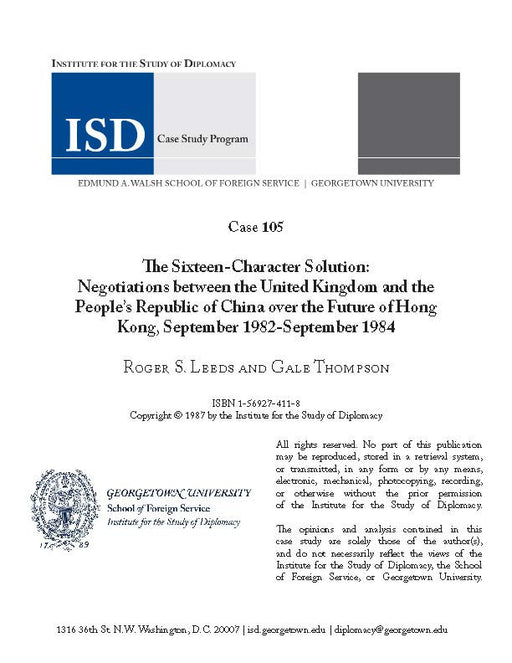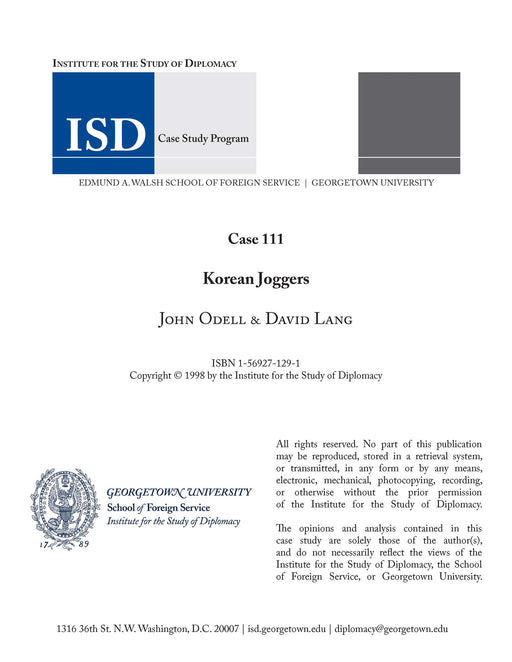Case 263 - American Military Retaliation for Terrorism: Judging the Merits of the 1998 Cruise Missile Strikes in Afghanistan and Sudan
Russell, Richard L.
In 1998 President Bill Clinton used military force to retaliate for terrorism against U.S. interests. His administration determined that Osama bin Laden, a Saudi exile and international terrorist who would later mastermind the 9/11 attacks, had orchestrated the near-simultaneous truck bombings of U.S. embassies in Kenya and Tanzania that August, killing 263 people, including 12 Americans. The Clinton administration argued that military retaliation against bin Laden’s organization was appropriate, both to mete out justice for the heinous acts and to deter future terrorist attacks against U.S. interests.
The resulting cruise missile strikes sparked heated American and international criticism. Potential adversaries, particularly in the Middle East and Russia, opposed the unilateral act as a rash action. Many observers were skeptical of the veracity of the intelligence linking bin Laden to the targets, particularly in Sudan. Other observers claimed that President Clinton had sought to use military action to divert American public and international attention from the worsening domestic scandal over his sexual relationship with a young White House intern, Monica Lewinsky, and increasing calls for his impeachment.
This case study offers insights into the American foreign policy decision-making process during a crisis, including the ways in which domestic political pressures influence foreign policy. It also raises the issue of the uses and limitations of force to retaliate against terrorism targeting U.S. interests. Finally, the study could be mined for 'lessons learned' to inform decision-making and policy options in the event of future terrorist attacks against U.S. interests.
For these reasons, it could be used in security and strategic studies courses that examine the use of force as an instrument of national policy in international relations, as well as more specialized instruction that analyzes terrorism as an international phenomenon, or looks at intelligence collection and analysis and their interface with policymaking.



